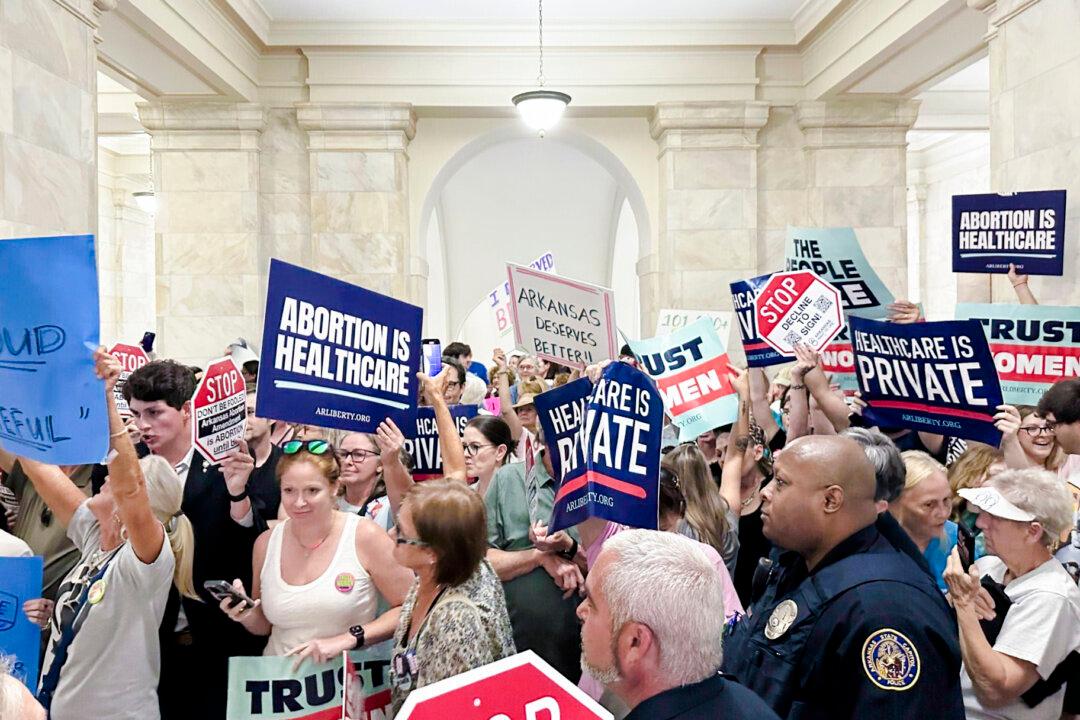The Arkansas Supreme Court has upheld the state’s rejection of signature petitions for a November ballot measure that would have enshrined expanded access to abortion in the state’s constitution, with the ruling winning praise from pro-life groups.
In a split 4–3 ruling on Aug. 22, the Arkansas Supreme Court held that Secretary of State John Thurston acted lawfully when he rejected petition signatures that had been collected by paid canvassers.





